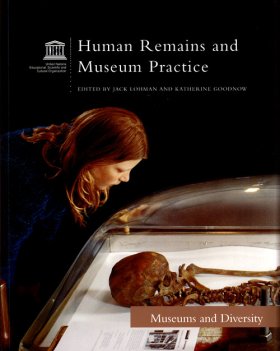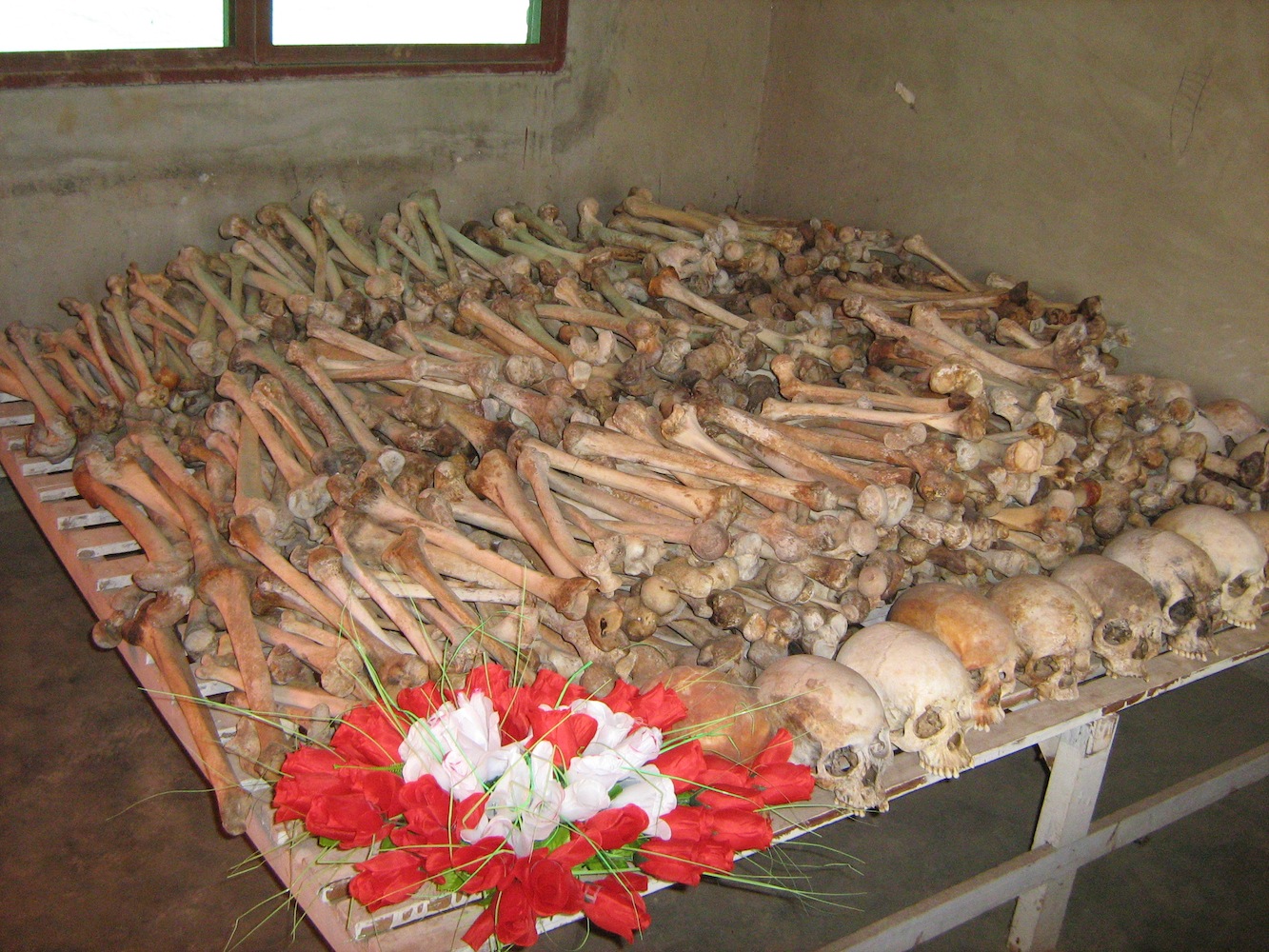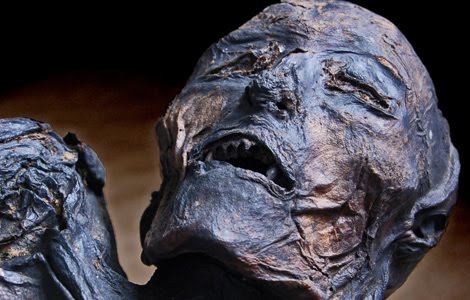My dear friend Andrew, who is currently living in Jamaica (not relevant, just awesome) sent me a book called Human Remains and Museum Practice. It’s basically like The Hunger Games — except a bunch of academics talking about bodies in museums. So… not at all like The Hunger Games.
 As someone constantly struggling with MEANING of those darn corpses, I totally get the dilemma of the book. Is it nice and tidy and scientific to show bodies of dead humans in a Western museum? At what point does that tribe in Borneo asking for the bones of their ancestors back for burial seem like a pretty obvious choice?
As someone constantly struggling with MEANING of those darn corpses, I totally get the dilemma of the book. Is it nice and tidy and scientific to show bodies of dead humans in a Western museum? At what point does that tribe in Borneo asking for the bones of their ancestors back for burial seem like a pretty obvious choice?
There is also the issue of us versus them. As a woman I can perhaps call myself a cunt but a man can’t call me that (though they have). For example: this artfully arranged pile of bones in Rwanda, acting as a reminder of the horrors of the Rwandan genocide. This display was put together by the Rwandan government at the Murambi Genocide Memorial. But what if the Natural History Museum in Washington DC displayed a pile of bones from the victims of genocide and told us it was totally fine because we were learning things?
Another sticky (pun intended) area is how fresh the body is. “Museums have traditionally taken the position that it is appropriate to display ‘old’ human remains but not the ‘recent’ dead.” But who decides what is old and what is recent? In this scenario Gunter von Hagen’s Body Worlds exhibit is bad because it’s all those ‘recent’ bodies, but that skeleton at your local museum from some grave mound in 700 AD is totally fair game because it’s ‘old.’ It seems like the rule is that it’s cool to display a dead person without asking them as long as it wasn’t POSSIBLE to ask them because their bones are older than your lifespan.
There are a lot of question marks in the book and phrases like “there are no easy answers.” Which is a shame because I was kind of hoping they would give me some damn answers.
What do you think about the display of the dead in a museum setting?
What if, in our highly sanitized Western culture, it’s really our only access to the truth of mortality?


